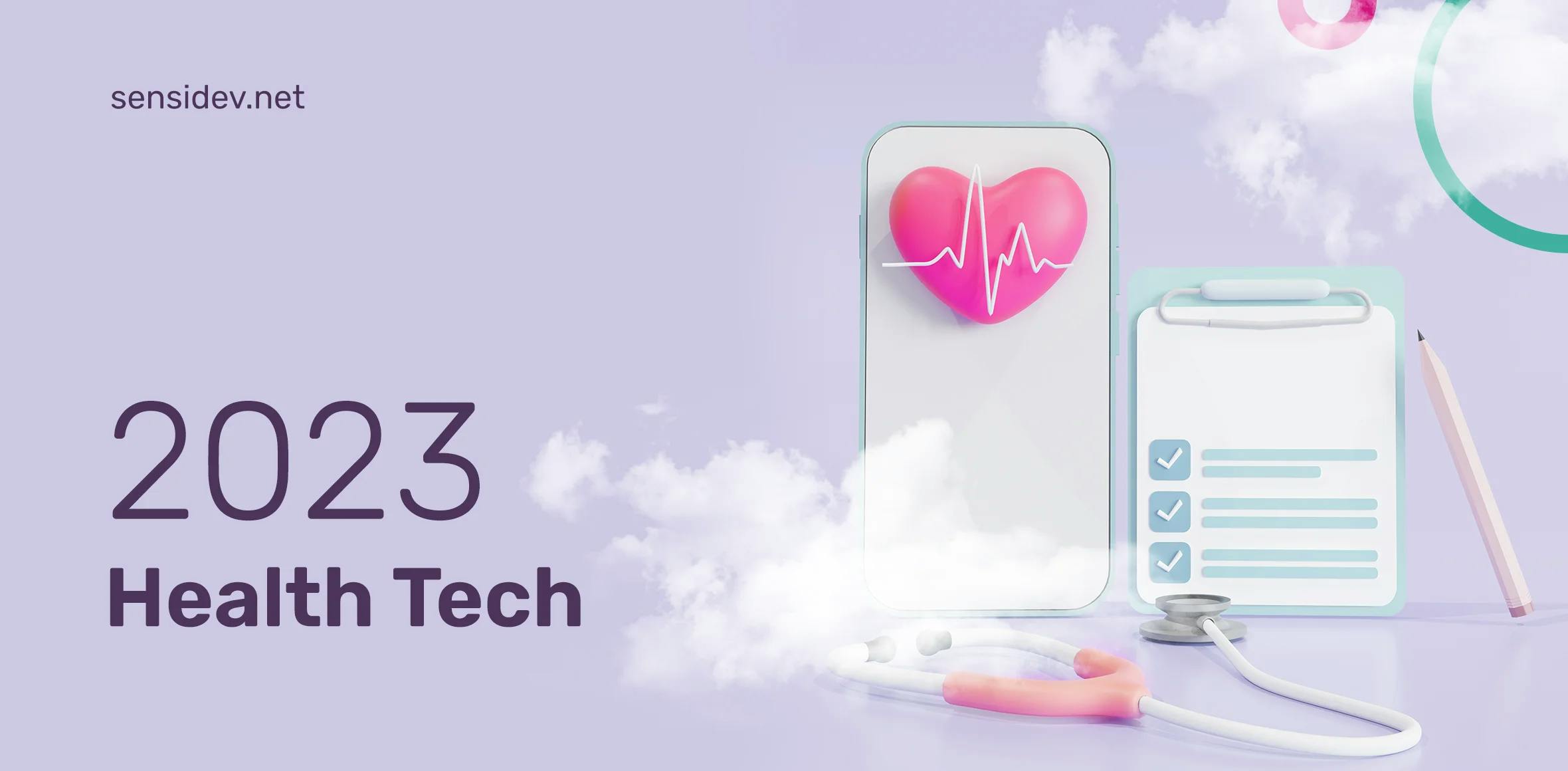
What to look forward to in 2023's health tech
by Ionuț Movilă • over 1 year ago • 3 min read
With a world pandemic disrupting all the ways we live our lives, the health tech sector must undergo structural and technical changes to go from treatment-based reactionary to prevention and wellness, as WHO has stated .
Thankfully, a new wave of medical innovation is on the horizon, with numerous new technologies and solutions on the way. These include biomedical engineering and artificial intelligence-powered wearables, mobile health, telemedicine, and digital health solutions. In 2023 and the years that follow, each of these technologies has the potential to completely upgrade the healthcare industry.
Moving forward, we’ll go through the health tech trends in 2023 and beyond:
1. Next-level AI
The biggest technological trend of 2021 will likely persist into 2023 and is AI in healthcare. It will not only change how medicine is practised, but also how we live. AI has the potential to accelerate growth in emerging nations as the modern healthcare sector undergoes a transformation.
Clinical decision-making has become more difficult as a result of the rising demand for personalized healthcare services. This led to the development of artificial intelligence (AI), which has helped medical professionals manage challenging healthcare circumstances. The way clinicians work is projected to change in the upcoming years as automation and AI algorithms improve interactions and patient outcomes.
These are the top use cases for AI in medicine:
- Preventive Medicine
Healthcare can be personalized with the aid of artificial intelligence-powered predictive analytics. AI, for instance, can identify a patient's highest risk for a stroke, which is often when they are at risk for diabetes or heart disease. Clinicians can modify the degree of care they offer using AI to stop it from happening. Medinav is a perfect example that learns and reduces patient documentation time.
- Neurological Disorders
By analysing MRI scans, for instance, AI-powered medical equipment can help diagnose and cure neurological illnesses like Parkinson's and Alzheimer's. Medical practitioners can now distinguish between different types of dementia thanks to this technology. One of the first Parkinson's disease medicines created by AI was Linus Health 's platform, which was introduced earlier in 2022.
- Drug Discovery
Clinical research and drug discovery can be accelerated by artificial intelligence, particularly when identifying side effects or determining the most effective drug combination. Deep learning algorithms, for instance, are already being used by virus researchers to assess whether medicine combinations would result in hazardous side effects and how to reduce them.
- Medical Image Analysis
To help medical practitioners analyse medical images, such as X-rays, MRIs, and other structural image sequences, medical AI can be applied to the images. Radiologists can use platforms with AI capabilities like Aidoc and Arterys to, for instance, find tumours that may be malignant or spot patient-risking bone fractures.
2. Gamification in healthcare
Platforms that encourage wellness can be designed using gamification in the healthcare industry. It really is about finding new ways to motivate patients and maintain their attention on their health by using their minds and games.
A rising number of patients are utilizing interactive medical simulations and gaming devices to help them strengthen their muscles and enhance their heart health as the healthcare sector advances gamification.
Gamification is a useful developing tool for healthcare professionals to boost patient involvement and contribute to a healthier ecosystem. It encourages patients to provide feedback, which helps product designers in identifying new trends and creating goods that cater to their target market.
3. Wearables for personalized data
Since its debut, wearable technology and the Internet of Things have developed from fitness trackers to tools that are far more capable. In general, wearable healthcare aims to assist you to manage your health rather than just monitor patient data. The possibilities are infinite when it comes to wearable technology and healthcare.
Wearable medical devices are available in a variety of shapes and sizes, including smartwatches, device wristbands, and much more. They may be used to measure a variety of health-related data, including your level of exercise, blood sugar levels, and more.
Do you want to put more bricks to the world of health tech? Let us know your innovative idea and we’ll build it with care 👉🏻 https://sensidev.net/contact/

